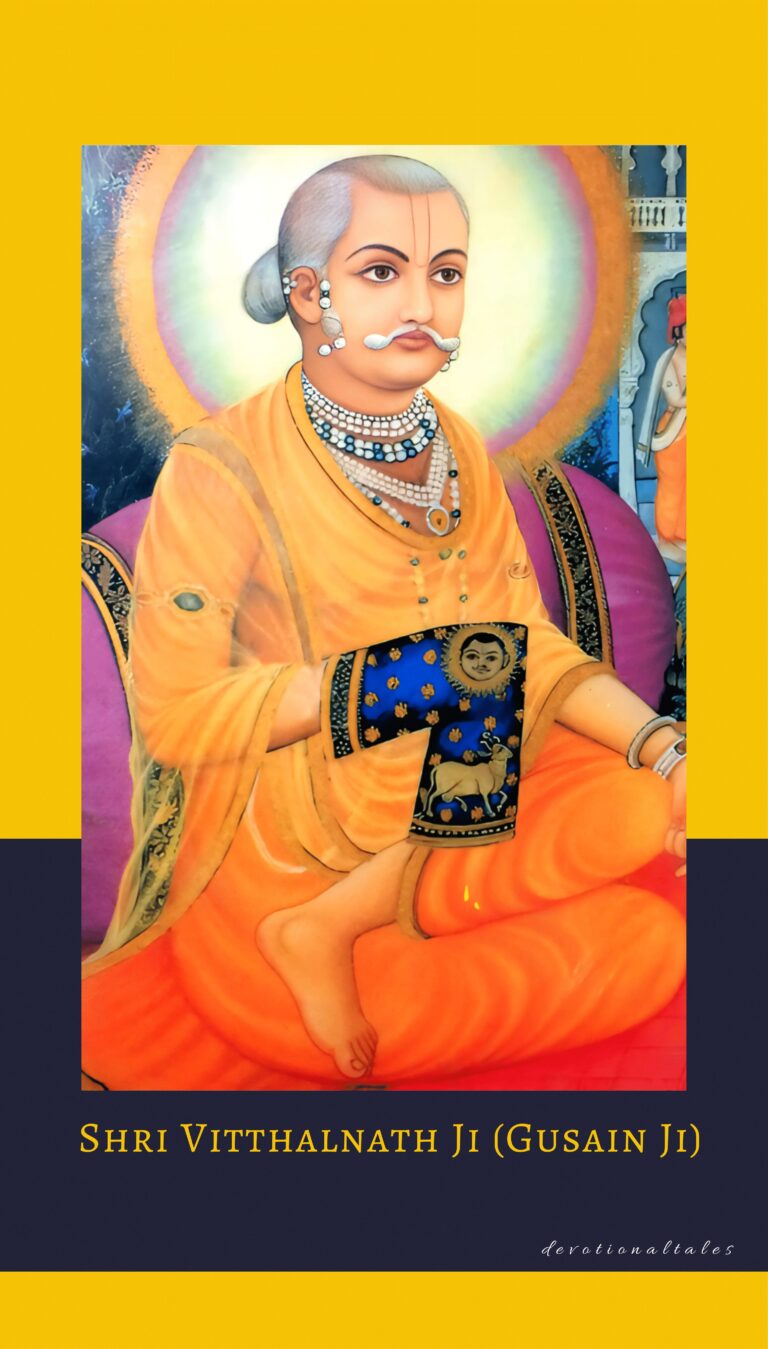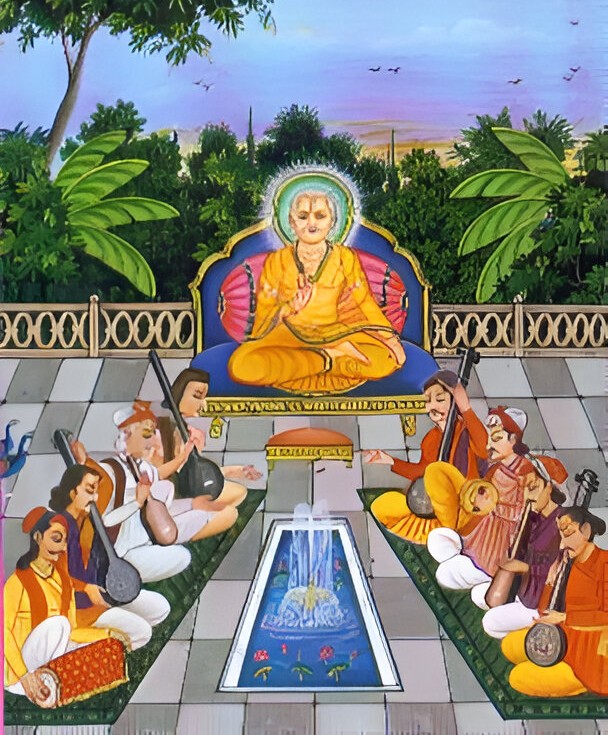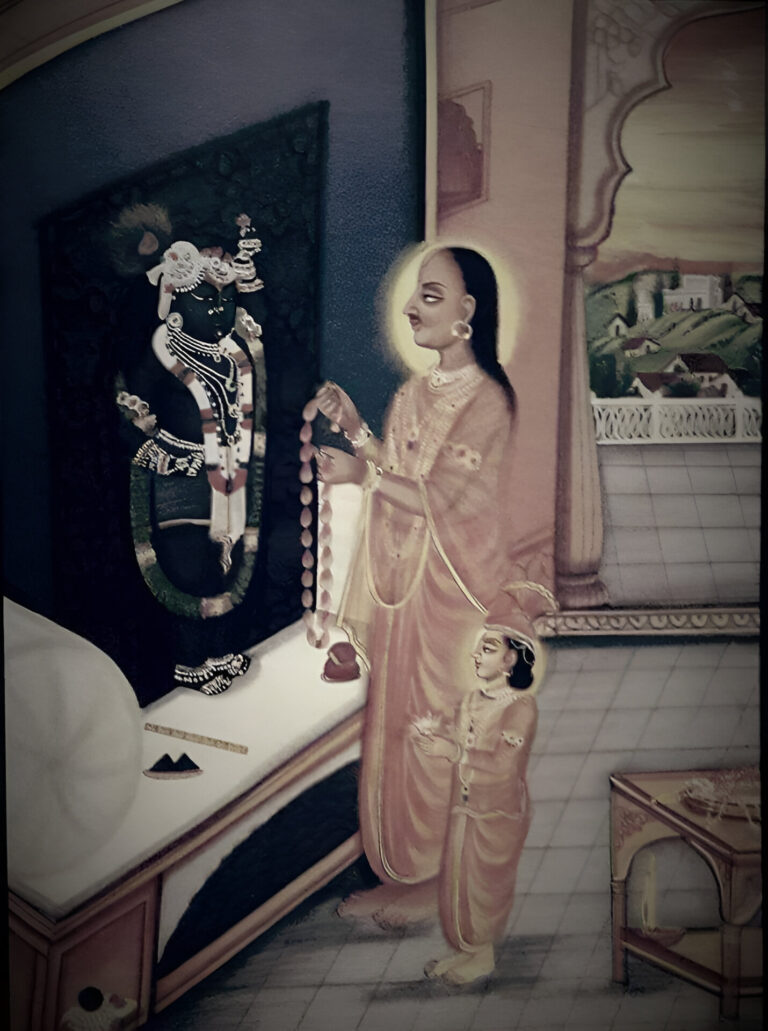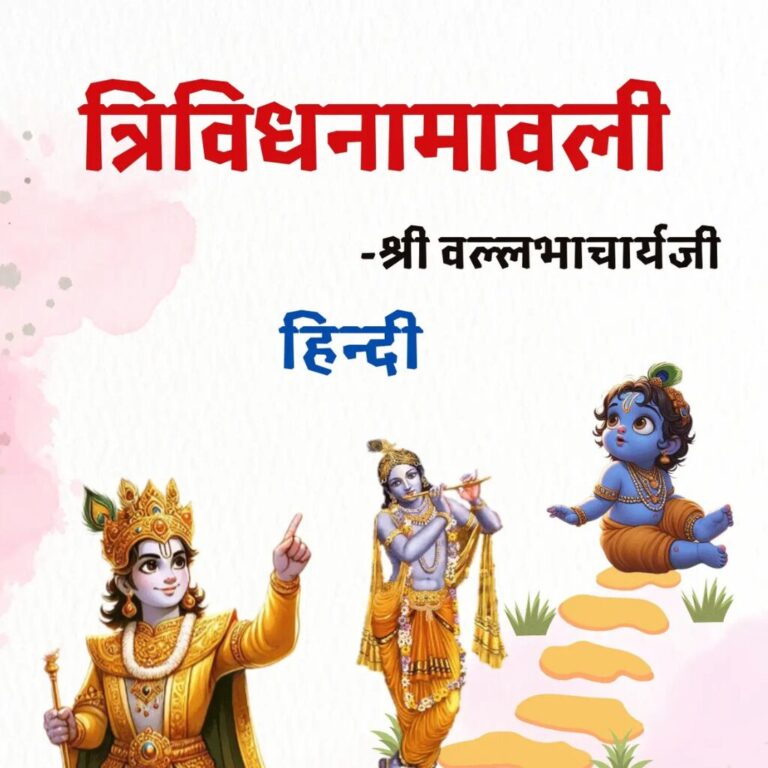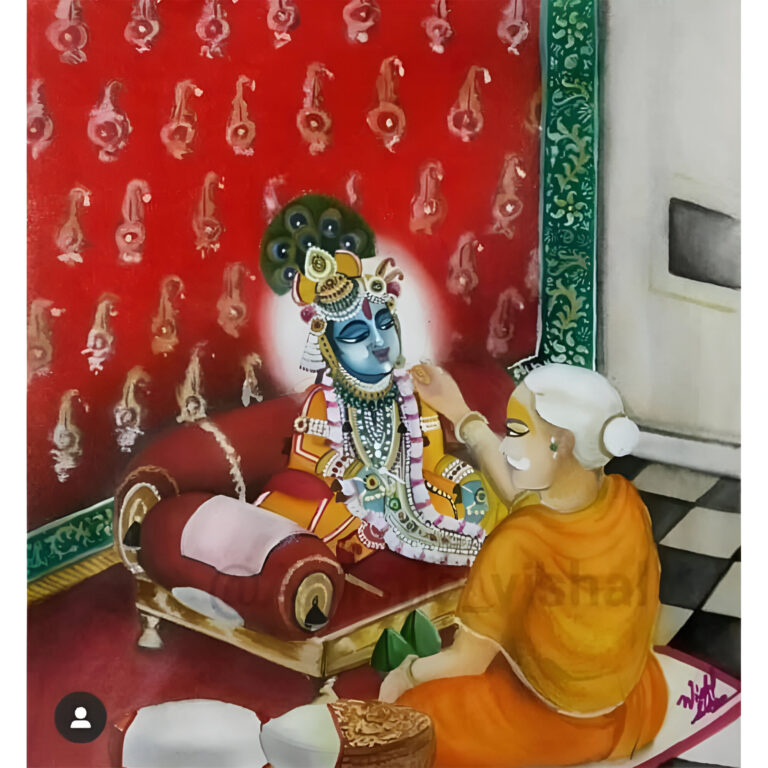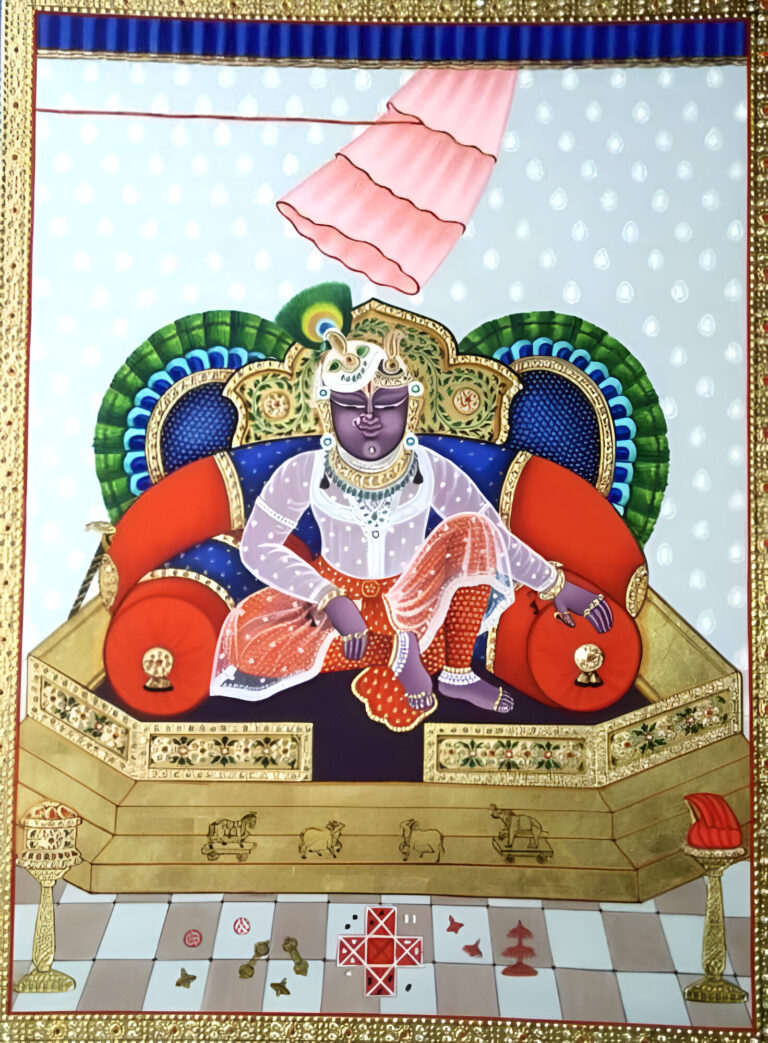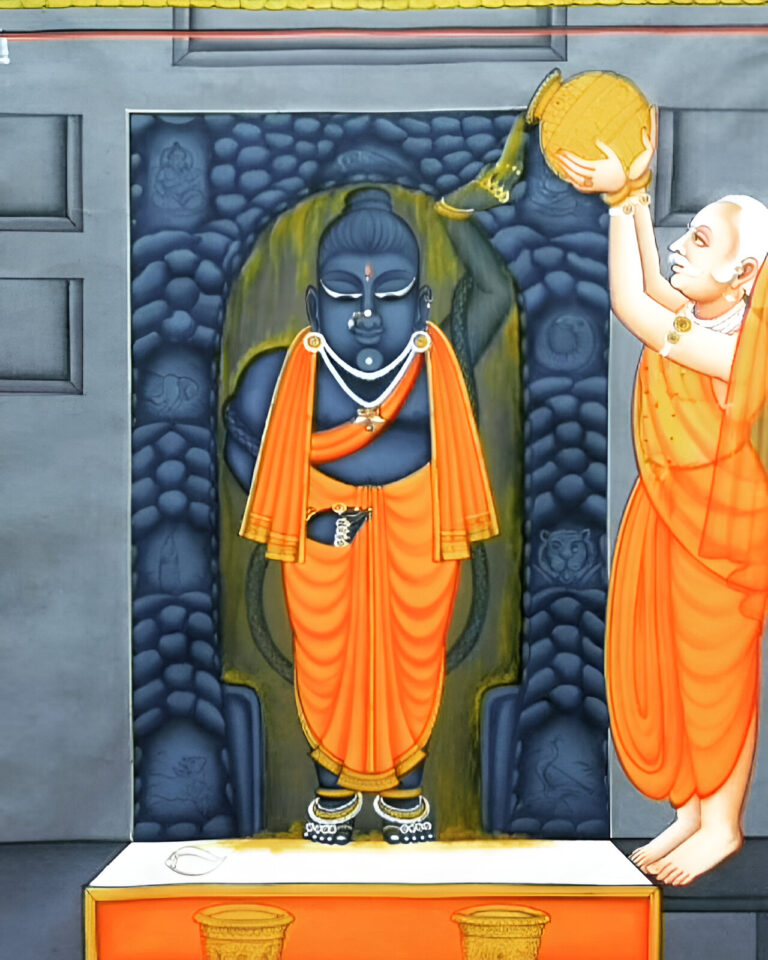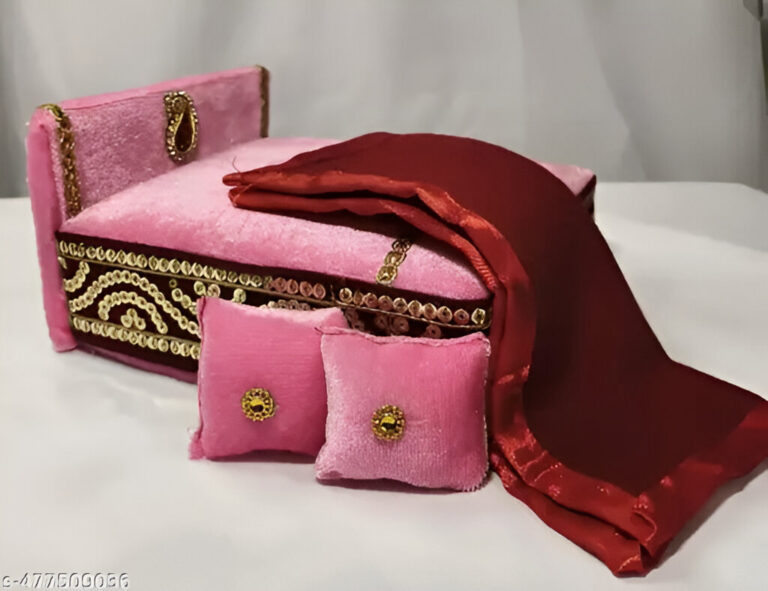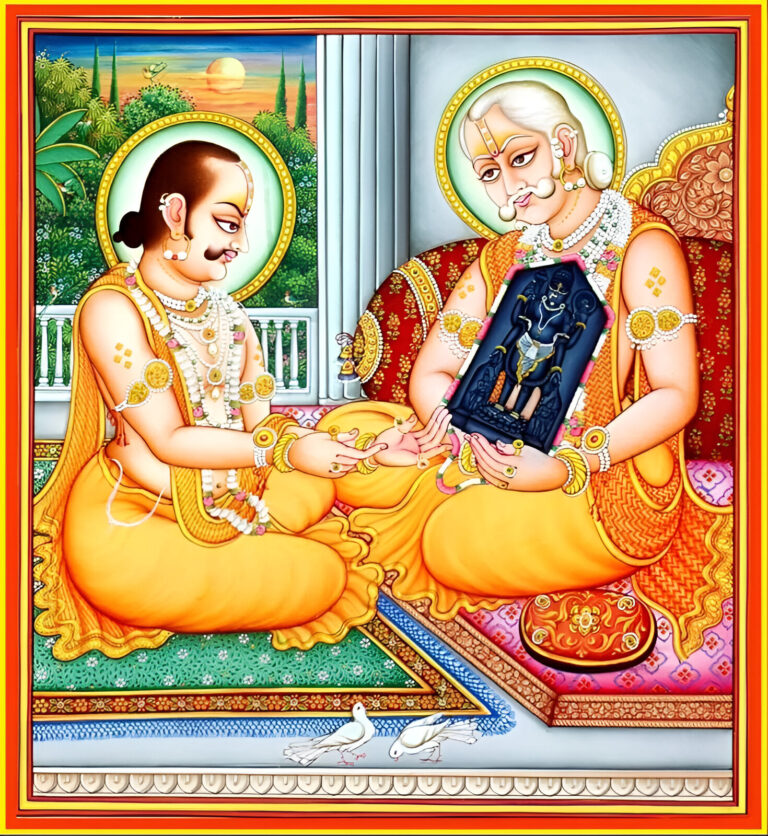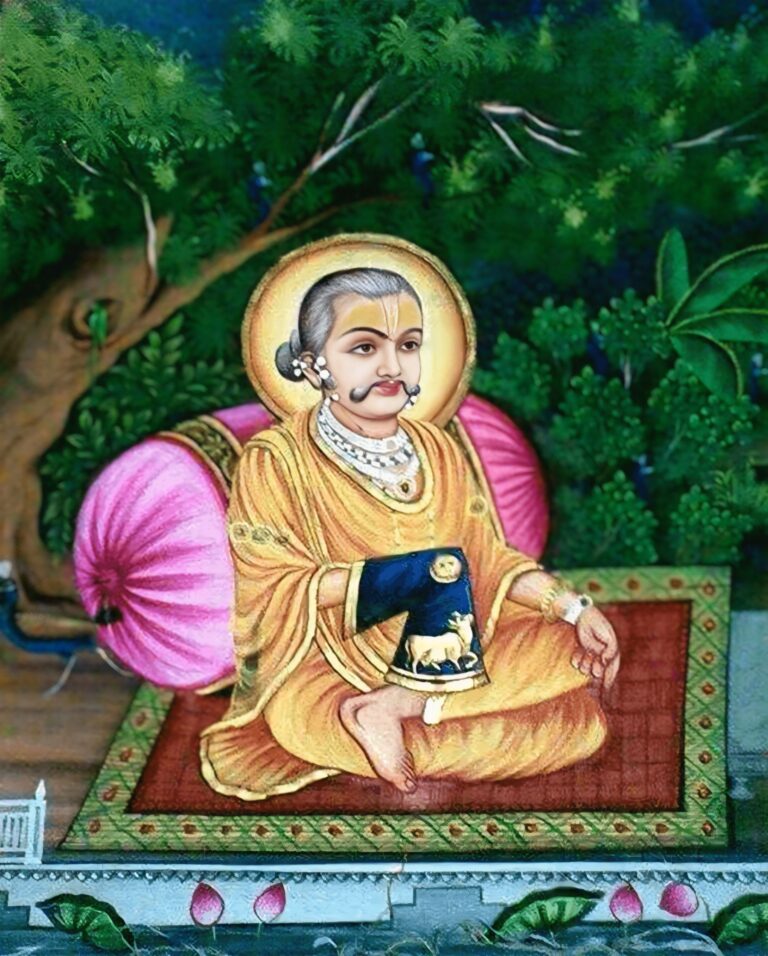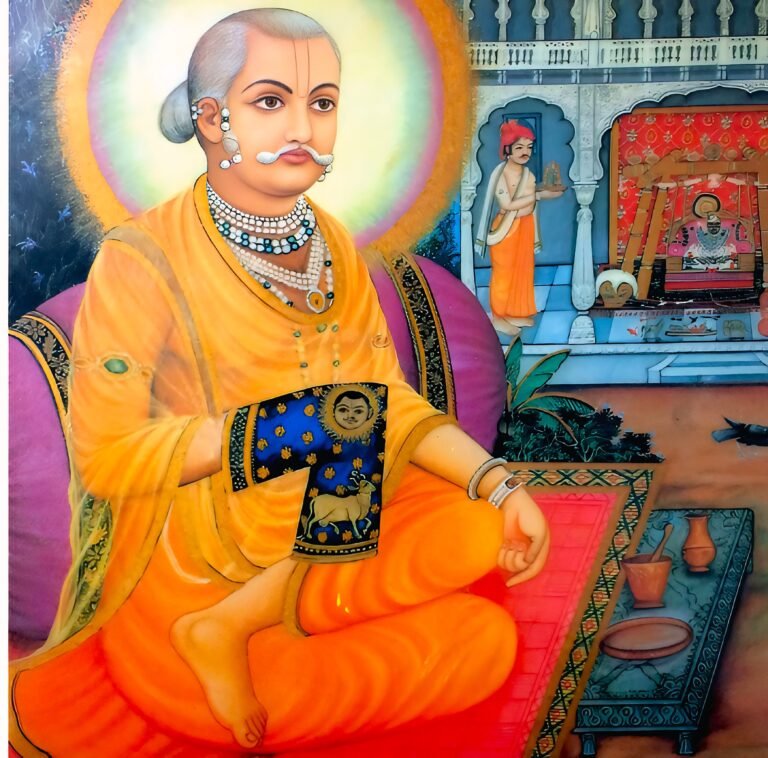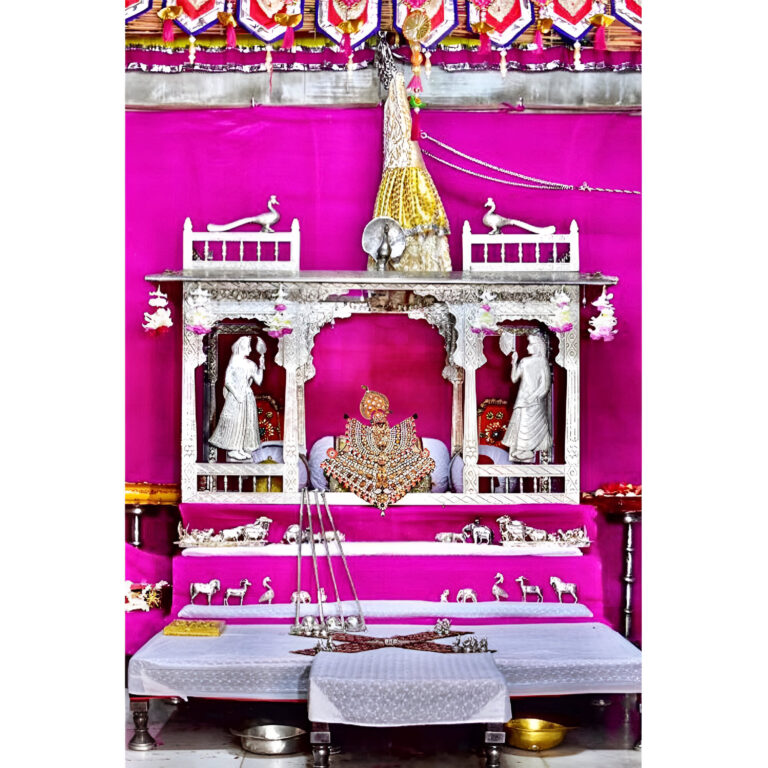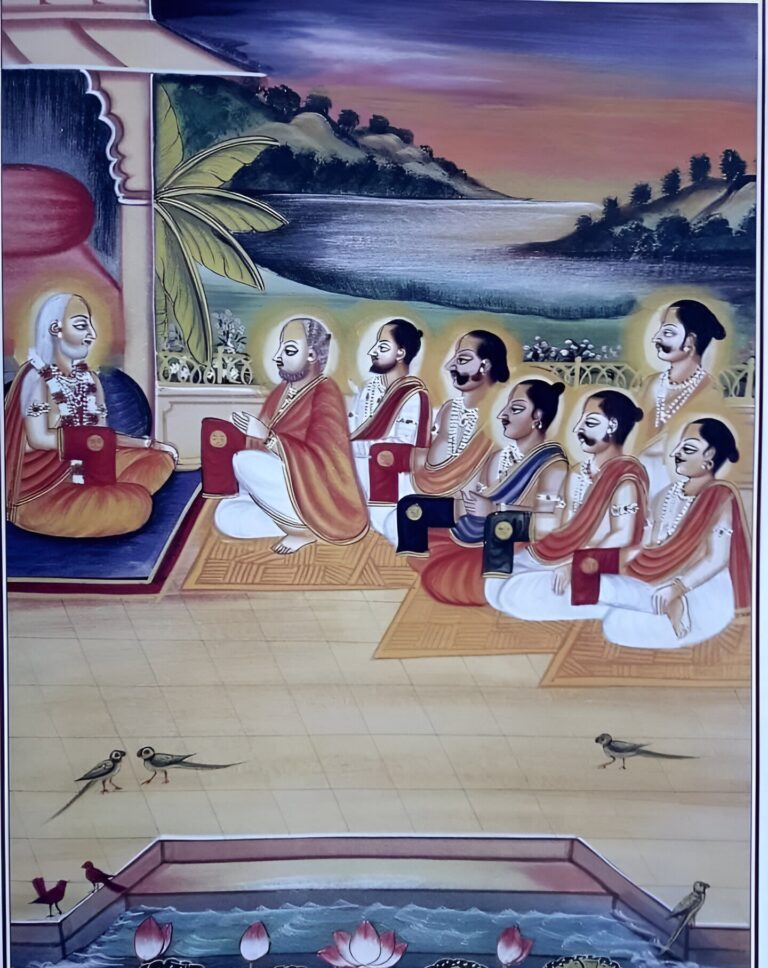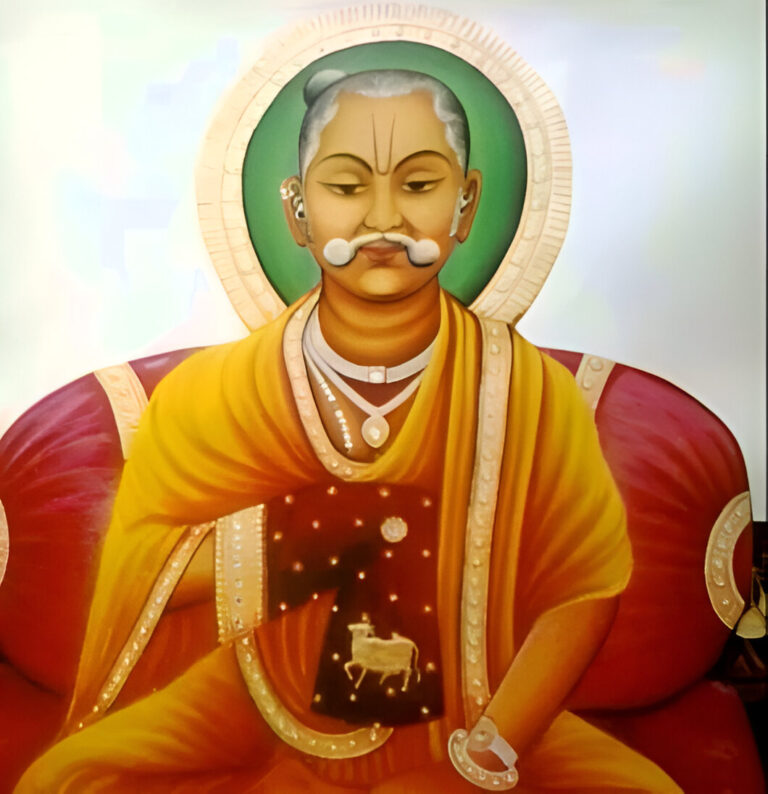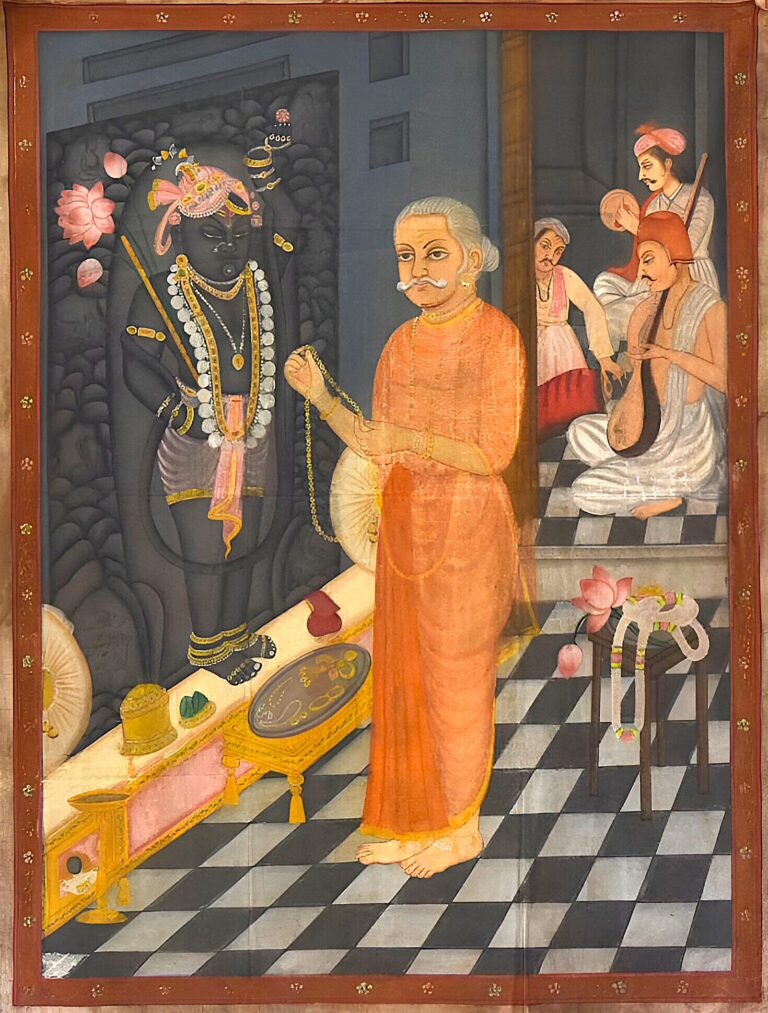A significant event in Shri Gusainji’s life was when Shri Mahaprabhuji entrusted him with the service of Shri Navneetpriyaji. This Swaroop (divine deity) originally belonged to Shri Dhavan, but when it returned to Shri Mahaprabhuji, he saw Shri Gusainji as the rightful caretaker.
With great reverence, Shri Gusainji accepted the responsibility and served Shri Navneetpriyaji with utmost devotion.
One day, while Shri Vitthalnathji (Shri Gusainji) was deeply immersed in adorning Shri Navneetpriyaji with ornaments, a disciple arrived, bringing a large sum of money as a present.
As the disciple dropped the coins onto the floor, the loud clinking sound momentarily distracted Shri Gusainji’s mind from his deity.
At that instant, a profound realization dawned upon him:
“If mere coins can disturb my focus from Bhagawan for even a moment, then what use is such wealth?”
With this thought, Shri Gusainji immediately refused to accept the money. This incident became a shining example of his detachment from material wealth and his unwavering dedication to Shri Krishna.

